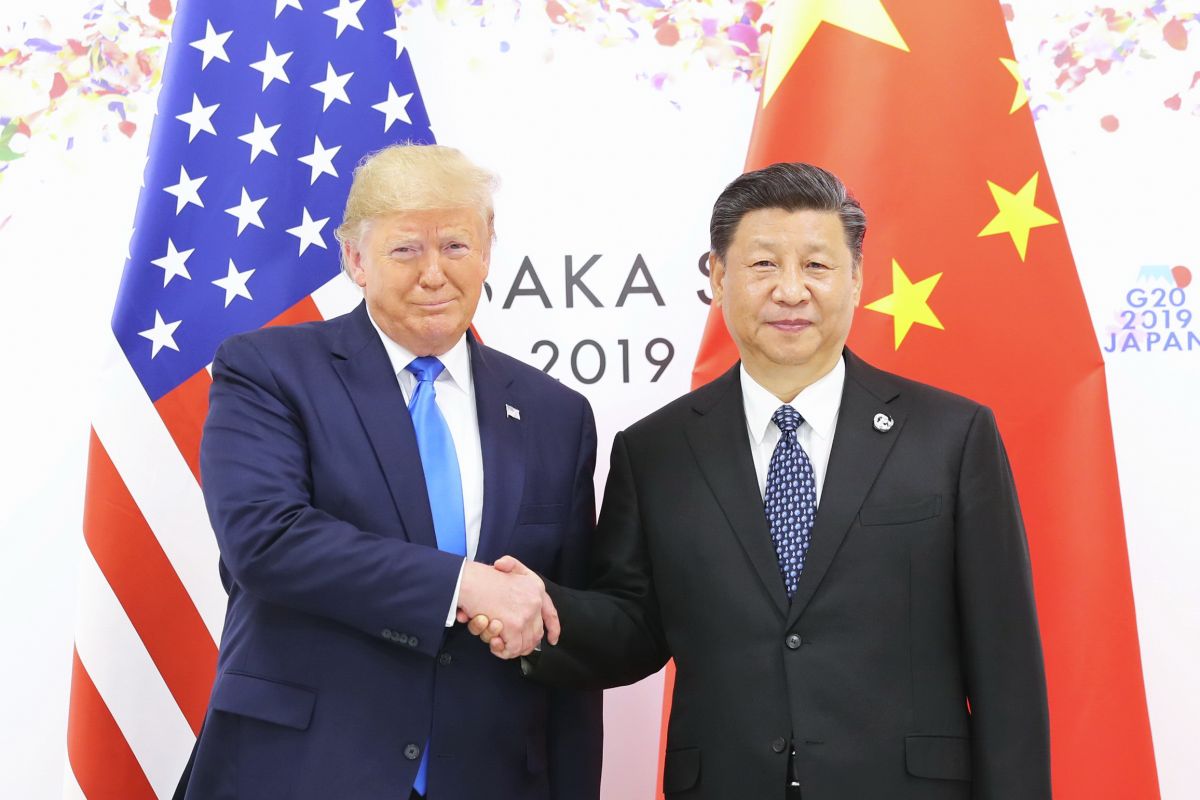US President Donald Trump on Saturday said that the United States and China would “very shortly” sign their so-called Phase One trade pact.
During an event in Florida, Trump said, “We just achieved a breakthrough on the trade deal and we will be signing it very shortly”.
Advertisement
Earlier this month, the Phase One deal was announced as part of a bid to end the months-long tit-for-tat trade war between the world’s two largest economies, which has roiled markets and hit global growth.
Under the deal, the United States would agree to reduce some tariffs in exchange for a big jump in Chinese purchases of American farm products.
On Friday, President Trump said that he had a “very good talk” with his Chinese counterpart Xi Jinping on a partial resolution of the countries’ huge trade war.
Earlier on Friday, President Xi Jinping said that phase one economic and trade deal between China and the US does not only benefits the two economic.
Xi Jinping spoke to his US counterpart Donald Trump over the phone and noted that the countries have reached the phase-one agreement on the basis of the principle of equality and mutual respect giants but also the whole world.
The “phase one” is a partial resolution that is expected to see China boost imports of US agricultural and other goods, while Washington has eased massive tariffs on Chinese imports.
Trump said he and Xi also discussed North Korea, which is resisting US-led pressure to dismantle its increasingly sophisticated nuclear program, and also the pro-democracy unrest in Hong Kong, where Trump noted “progress!”
According to the two countries, the phase one agreement addresses issues including technology transfer, intellectual property, trade expansion and the establishment of mechanisms for dispute resolution.
China had called for a rollback of existing tariffs, to which Trump has said he did not agree. American officials want large purchases of US farm exports.
In September, the US had imposed fresh tariffs on $112 billion worth of Chinese imported goods, marking a sharp escalation of the bruising trade war between the world’s two largest economies.
Donald Trump launched the trade war as part of his “America First” bid to lower a wide trade deficit with China, but the tariffs imposed thus far have barely made a dent in that gap.











